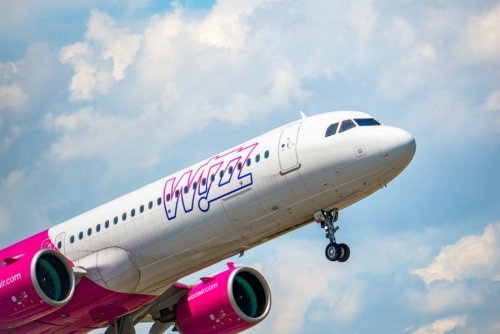Virgin Atlantic ‘second most punctual airline’ in the UK in 2023 – with Wizz Air the worst
Links on Head for Points may support the site by paying a commission. See here for all partner links.
Wizz Air has been named the least punctual UK airline for 2023, closely followed by Turkish Airlines and TUI.
The list, published in full below, was produced by the Press Association using publicly available granular data from the Civil Aviation Authority.
Wizz Air has now topped the ‘least punctual’ list for three years.

The average UK flight was delayed by 20 minutes from 23 minutes, which was an improvement on 2022.
Wizz Air was well out in front with an average UK delay of over 31 minutes. Turkish Airlines and TUI couldn’t even begin to match that, coming in at an average delay of 28 minutes.
British Airways came in 10th worst out of the 33 carriers covered, with an average delay of 21 minutes. It was six seconds worse than easyJet.
Virgin Atlantic performed impressively well, coming in second best. The average delay was just 13 minutes.
The most punctual airline was Emerald Airlines, which runs Aer Lingus Regional flights to/from Ireland on a franchise basis.
Who were the least punctual UK airlines in 2023?
- Wizz Air (31 minutes)
- Turkish Airlines (28 minutes)
- TUI (28 minutes)
- Air India (28 minutes)
- Pegasus Airlines (25 minutes)
- TAP Air Portugal (23 minutes)
- Vueling (23 minutes)
- SWISS (22 minutes)
- Air Canada (22 minutes)
- British Airways (21 minutes)
- easyJet (21 minutes)
- Aurigny (20 minutes)
- Ryanair (19 minutes)
- Loganair (19 minutes)
- American Airlines (18 minutes)
- Eastern Airways (18 minutes)
- Air France (18 minutes)
- Emirates (18 minutes)
- Lufthansa (18 minutes)
- Eurowings (17 minutes)
- Jet2.com (17 minutes)
- Norwegian (17 minutes)
- Aer Lingus (17 minutes)
- Qatar Airways (16 minutes)
- KLM (15 minutes)
- United Airlines (15 minutes)
- Blue Islands (15 minutes)
- Delta Airlines (15 minutes)
- Iberia (14 minutes)
- SAS (14 minutes)
- Virgin Atlantic (13 minutes)
- Emerald Airlines (13 minutes)



 Rhys
Rhys 





Comments (30)